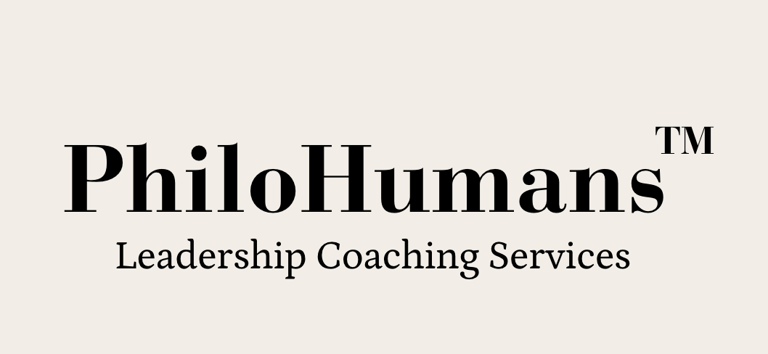Empowering Yourself: Tips to Take Control of Your Life and Build a Great Relationship with Yourself
Explore the essential elements of building a strong self-relationship, including self-awareness, self-acceptance, and self-esteem. Learn how to set personal boundaries, develop a growth mindset, and practice self-care and mindfulness to enhance your overall well-being and empower your leadership abilities. Discover actionable strategies to nurture your inner self and cultivate meaningful connections with others.
LEADERSHIP RELATIONSHIPS
Dr. Rojin Karickal
10/6/20244 min read


Understanding Self-Relationship
Building a strong self-relationship is fundamental to personal empowerment and overall well-being. At the core of this relationship lie self-awareness, self-acceptance, and self-esteem. Self-awareness involves recognizing and understanding one’s thoughts, emotions, and behaviors. By engaging in self-reflection, individuals can gain insight into their values, beliefs, and motivations. This understanding fosters a deeper connection with oneself, allowing for better decision-making and emotional regulation.
Self-acceptance complements self-awareness by encouraging individuals to embrace who they are without judgment. Acceptance of one’s strengths and weaknesses creates a safe internal space where growth can flourish. When individuals accept themselves as they are, they allow for a more authentic expression of their identities, reducing the internal conflict often caused by unrealistic expectations. This acceptance paves the way for a healthier self-view, empowering individuals to pursue their goals with confidence.
Similarly, self-esteem plays a crucial role in strengthening one’s self-relationship. Healthy self-esteem involves recognizing one’s intrinsic worth while maintaining a realistic perspective on personal capabilities. It inspires individuals to take risks and pursue their passions, unburdened by the fear of failure. Nurturing self-esteem encourages a positive self-image, which significantly impacts how one approaches challenges and builds relationships with others.
Engaging with these dimensions of self-relationship enables individuals to develop resilience and a strong internal compass. By reflecting on personal values and beliefs, individuals transform their perspectives and cultivate self-love. Ultimately, a well-nurtured self-relationship not only enhances personal empowerment but also serves as a cornerstone for effective leadership, as understanding oneself leads to more authentic interactions with others.
Setting Personal Boundaries
Establishing personal boundaries is an essential aspect of fostering a healthy relationship with oneself. These boundaries serve as guidelines that dictate how individuals engage with others and how they allow others to engage with them. By clearly defining these limits, one can protect their time, energy, and mental health, leading to greater clarity and control over their life.
To begin setting effective personal boundaries, it is crucial to first identify areas in your life where boundaries are necessary. Take some time for self-reflection and consider situations in both personal and professional realms where you feel overwhelmed or uncomfortable. These feelings often signal the need for clear boundaries. For instance, if you find yourself frequently burdened by requests from colleagues or friends, it may indicate a need to establish limits on your availability.
Once you have identified these areas, communicate your boundaries assertively yet kindly. It is important to express your needs unequivocally while remaining respectful. For example, you might say, “I can’t take on additional work right now, but I appreciate you thinking of me.” Utilizing “I” statements can be particularly effective, as they communicate your feelings and needs without placing blame on others. Effective communication also paves the way for mutual respect and understanding.
Moreover, consistency is key when enforcing boundaries. It can take time for others to adjust to the new limits you set, which is why it is essential to remain committed to upholding these boundaries. Regularly assessing and adjusting your boundaries is also important, as personal and professional dynamics change over time. By prioritizing your needs and protecting your mental well-being, you are better equipped to lead a fulfilling life and cultivate meaningful relationships.
Developing a Growth Mindset
A growth mindset is a crucial component of personal development and a key factor in effective leadership. Coined by psychologist Carol Dweck, this concept contrasts sharply with a fixed mindset, where individuals believe their abilities and intelligence are static. In contrast, those with a growth mindset embrace challenges, persist through obstacles, and view failures as opportunities for growth. Understanding this fundamental difference is vital for anyone seeking to empower themselves and enhance their life experiences.
To cultivate a growth mindset, individuals can start by rewriting their internal dialogue. Instead of thinking, "I can't do this," try reframing it to, "I can't do this yet." This simple shift encourages a sense of possibility and primes the mind for resilience. Embracing challenges is another vital strategy; rather than avoiding difficulties, seek out experiences that push you outside of your comfort zone. This willingness to confront challenges head-on fosters adaptability, an essential trait in both personal and professional realms.
Furthermore, learning from failures can significantly strengthen one’s growth mindset. Instead of being discouraged by setbacks, individuals should analyze what went wrong, extract lessons, and apply them to future endeavors. This iterative learning process not only enriches self-awareness but also enhances leadership capabilities by promoting a culture of continuous improvement. By modeling a growth mindset, leaders can inspire their teams to adopt similar attitudes, creating an environment where learning and development are prioritized.
In summary, developing a growth mindset is indispensable for personal empowerment and effective leadership. By embracing challenges, learning from failures, and fostering an adaptable mindset, individuals can significantly enhance their understanding of themselves and their impact on others.
Practicing Self-Care and Mindfulness
Self-care and mindfulness are essential components in nurturing a healthy relationship with oneself. When individuals prioritize self-care, they create a foundation for emotional, mental, and physical wellness. Self-care involves recognizing personal needs and taking actionable steps to meet them, which could include engaging in regular exercise, eating a balanced diet, and ensuring adequate sleep. These practices not only elevate mood and enhance physical health, but they also contribute to increased mental clarity, which is crucial for effective decision-making and problem-solving.
Emotional wellness is another critical aspect of self-care that can be nurtured through practices such as journaling, talking to a therapist, or simply engaging in activities that bring joy. Embracing hobbies or interests can serve as perfect opportunities for self-expression, allowing individuals to cultivate a deeper understanding of their emotions. By fostering emotional well-being, one can enhance resilience and improve relationships with others.
Mindfulness plays a pivotal role in enhancing self-awareness and anchoring oneself in the present moment. Techniques like meditation, deep breathing exercises, or mindful walking can help individuals cultivate a greater awareness of their thoughts and feelings. This heightened awareness is invaluable as it allows individuals to respond thoughtfully rather than react impulsively to situations. Incorporating mindfulness practices into daily routines empowers individuals to maintain focus and clarity, which in turn benefits their overall well-being and effectiveness as leaders.
By integrating self-care and mindfulness into their lives, individuals significantly elevate their self-relationship. As they allocate time for personal nurturing, they not only experience an improvement in their own well-being but also strengthen their capacity to lead and support others. Ultimately, embodying self-care and mindfulness leads to clearer thinking, better decision-making, and a more fulfilling, balanced life.


